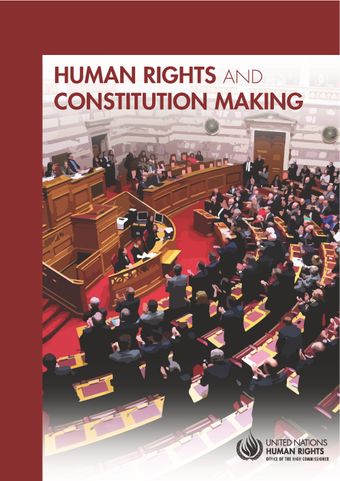Introduction

- Author: United Nations
- Main Title: Human Rights and Constitution Making , pp 1-1
- Publication Date: July 2018
- DOI: https://doi.org/10.18356/a7f10b65-en
- Language: English Arabic, French, Russian, Spanish
- Previous Chapter
- Table of Contents
- Next Chapter
States in many parts of the world regularly amend and in some cases write entirely new constitutions. This may happen for a variety of reasons. For example, it may reflect a desire to redefine the distribution of political power, hopefully with the aim that a constitution will be more democratic, have better checks and balances, and be more responsive to the wishes of the electorate. Constitutional change may also be undertaken after a period of conflict to establish a new constitutional order and to provide a vision on how to move forward to create a more equitable society. Or there may be a desire to update an existing constitution so that it will be more responsive to political, economic or social changes in society. Whatever the reason, a key part of any constitutional reform is ensuring the promotion, respect and protection of human rights and fundamental freedoms. Socrates wrote that freedom is the essence of democracy. It is as true today as it was over 2,000 years ago. And a good constitution can greatly assist in protecting those freedoms and providing the foundations for democratic governance.
-
From This Site
/content/books/9789213622513c001dcterms_title,dcterms_subject,pub_keyword-contentType:Journal -contentType:Contributor -contentType:Concept -contentType:Institution105

